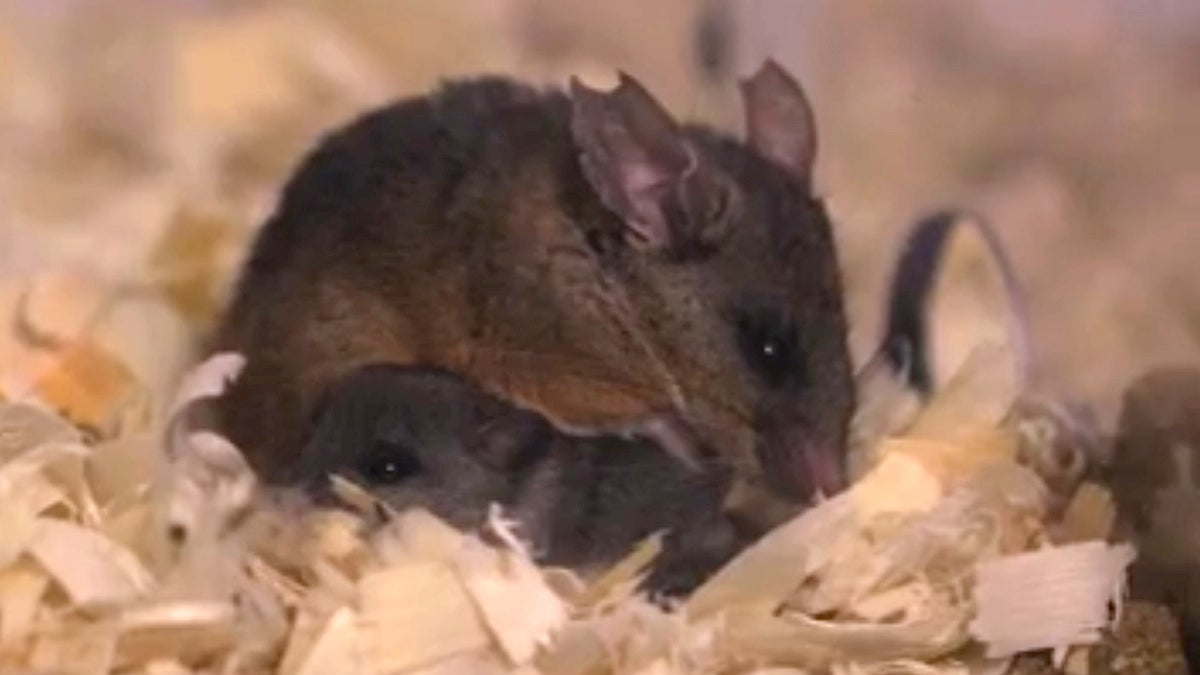Could parenting tips from mice help humans?
Listen
Investigations into how male California brown mice parent their young offer insights into the nature/nurture debate that is often at the forefront of human child rearing practices. (Courtesy of Saint Joseph's University
Investigations into how male California mice parent their young offer insight into the nature/nurture debate in human childrearing practices.
You might not think highly of mice, especially if you are most familiar with the kind that wreak havoc in your cupboards and brazenly dash across your kitchen countertops. But Dr. Elizabeth Becker’s research into mouse behavior might change your opinion. Her investigations into how male California brown mice parent their young offers insight into the nature/nurture debate that is often at the forefront of human child rearing practices.
In our regular segment “So, What Do You do” where lay people interview scientists about their work – Elizabeth Becker a behavioral neuroendocrinologist and assistant professor in psychology at Saint Joseph’s University talked to Anthony Stipa, account manager at Slice Communications.
Stipa came ready with good questions, including what makes California brown mice good study subjects. It isn’t, as Stipa suggested, their love of the beach.
“I’ve worked with other species before,” says Becker, “but these mice I’m madly in love with!”
This particular species has two unique qualities. It’s monogamous and both the male and female participate in parenting.
“Among mammals, bi-parental species are actually very rare, humans are an obvious exception,” says Becker.
Since both mice are active in raising the young, Becker can study how caregiving behavior for both male and female mice shapes “parental behavior in their offspring.”
The idea that good parenting can influence the next generation’s parenting skills has implications for human behavior. Becker has found that the results do extend to people.
“What we see from studies in humans is actually the same pattern,” says Becker.
Children who are abused often go on to abuse their children at much higher rates. Researchers have found similar brain changes in abused children and mice who were neglected.
“I think it’s really critical to understand the consequences of parental contribution to offspring brain and behavior,” says Becker. “If we understand those consequences we can provide support and perhaps prevention for the negative experiences that [human] offspring are having.”
WHYY is your source for fact-based, in-depth journalism and information. As a nonprofit organization, we rely on financial support from readers like you. Please give today.



